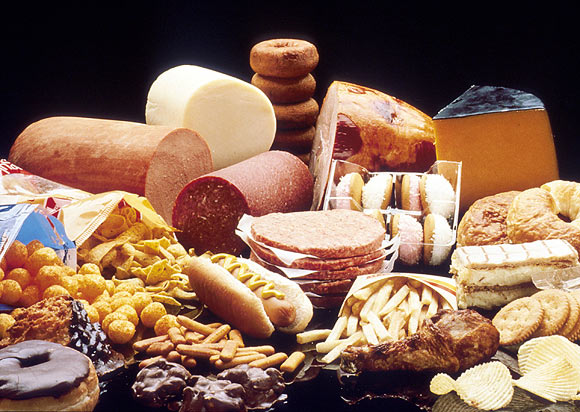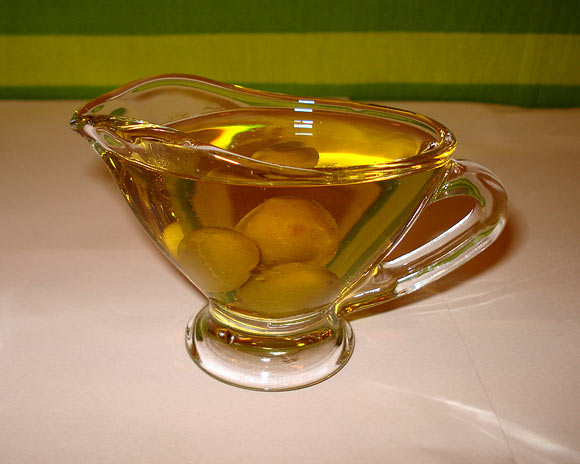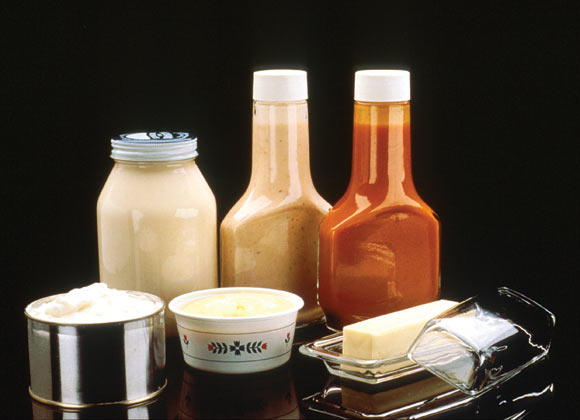 | « Back to article | Print this article |
FACTS you need to know about FAT
Saturated, monounsaturated, trans and poly. Are you confused yet?
You may be, even if you've been keeping up on what types of fat to eat and which to shun. By now you've probably heard of stealthy trans-fats. If they're not on the 'Nutrition Facts' panel yet, they're soon to arrive.
Trans-fats are sinister because like saturated fat, they raise total cholesterol and LDL, the "bad" cholesterol levels. Trans-fats lower levels of beneficial, HDL cholesterol in the body.
Also, consumption of trans-fats may inhibit the absorption of healthy fats that are necessary for the growth and functioning of vital organs.
Though much has been made about the dangers of trans-fats, experts caution that those warnings shouldn't overshadow the potentially disastrous effects of saturated fats. The saturated fats "increase cholesterol levels, which can lead to clogged arteries, heart attacks, strokes and obesity."
In the following pages, we take a closer look at the different types of fats.
Different types of fats
- Monounsaturated: These "good" fats are found mainly in plant sources, like nuts, avocados and olive, peanut and canola oils. They are liquid at room temperature.
- Polyunsaturated fats: These fats, which include the healthy omega-3 fatty acids, are also found in plant oils such as safflower, sunflower, corn, flaxseed and canola oils, as well as in seafood. Polyunsaturated fats are either liquid or soft at room temperature. Essential fatty acids alpha-linolenic and linoleic acid are also in the polyunsaturated group. These fats, which we need to get from the foods we eat, are necessary for the creation of cell walls and hormones in the body.
- Saturated fats: These fats are found mostly in animal products. Red meat, poultry, cheese, butter and other dairy products are the main sources. Some plant products like palm, coconut and palm kernel oil are also saturated. These fats are solid at room temperature.
- Trans fats: This type of fat is formed when unsaturated vegetable oils are hydrogenated (or partially hydrogenated) to form solid, more stable fats. Hydrogen atoms are actually added to the oils. Trans-fats include margarine and shortening and are found in everything from crackers, cookies, doughnuts, frozen pie crusts, deep-fried foods, and foods with chocolate coatings.
Trimming the fat
- Keep your total fat intake to around 30 per cent of your total calorie intake.
- Limit saturated fat intake to no more than 7 to 10 per cent of your intake.
- Get about 10 to 15 per cent of total calories from monounsaturated fats.
- About 10 per cent of calories should come from polyunsaturated fats.
- For an individual eating 2,000 calories a day, this translates to 66 grams of total fat and no more than 16 to 22 grams of saturated fat per day.
Butter vs margarine
This debate has raged on for years. If you're looking for a healthy morning spread, avoid stick margarine. Choose a light, soft margarine or butter substitute that says "trans-fat free" on the package. Butter lovers should use it sparingly to cut down on saturated fat.
What's the bottom line? At 9 calories per gram, fats are our most caloric energy source, so we need to keep track of how much we're eating, no matter what type. Still, you'll improve your health greatly by eating more monounsaturated and polyunsaturated fats, including omega-3 fatty acids. Make an effort to cut back on saturated fats and try to avoid trans-fats.



